Zhenxin Wu
Domain-level Pairwise Semantic Interaction for Aspect-Based Sentiment Classification
Feb 21, 2022
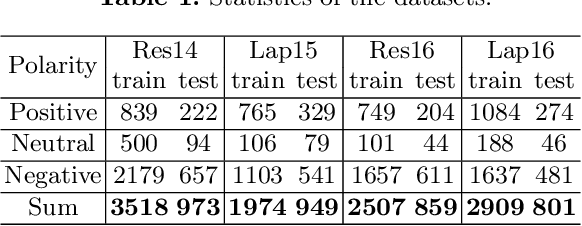
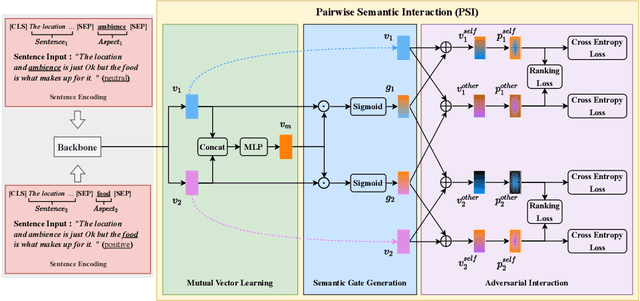
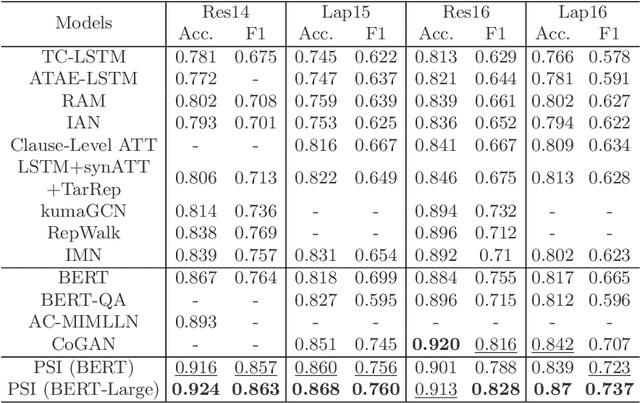
Abstract:Aspect-based sentiment classification (ABSC) is a very challenging subtask of sentiment analysis (SA) and suffers badly from the class-imbalance. Existing methods only process sentences independently, without considering the domain-level relationship between sentences, and fail to provide effective solutions to the problem of class-imbalance. From an intuitive point of view, sentences in the same domain often have high-level semantic connections. The interaction of their high-level semantic features can force the model to produce better semantic representations, and find the similarities and nuances between sentences better. Driven by this idea, we propose a plug-and-play Pairwise Semantic Interaction (PSI) module, which takes pairwise sentences as input, and obtains interactive information by learning the semantic vectors of the two sentences. Subsequently, different gates are generated to effectively highlight the key semantic features of each sentence. Finally, the adversarial interaction between the vectors is used to make the semantic representation of two sentences more distinguishable. Experimental results on four ABSC datasets show that, in most cases, PSI is superior to many competitive state-of-the-art baselines and can significantly alleviate the problem of class-imbalance.
Progressive Multi-stage Interactive Training in Mobile Network for Fine-grained Recognition
Dec 08, 2021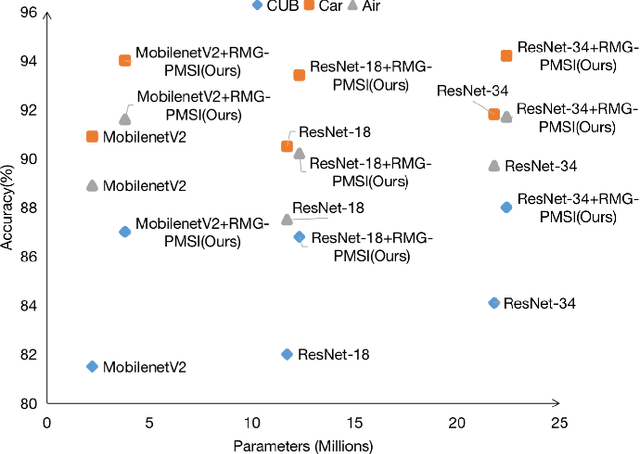
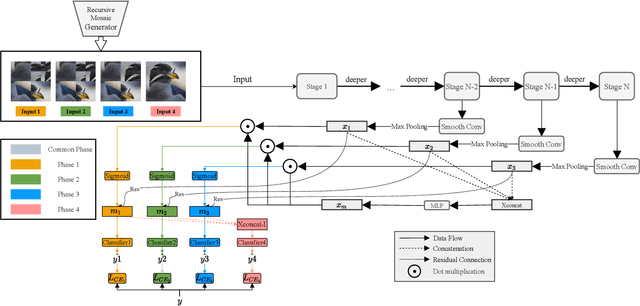
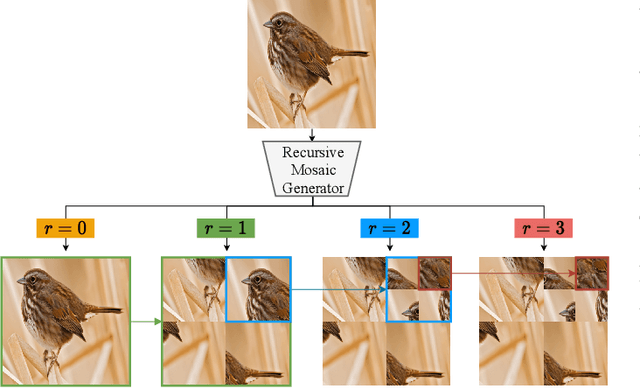
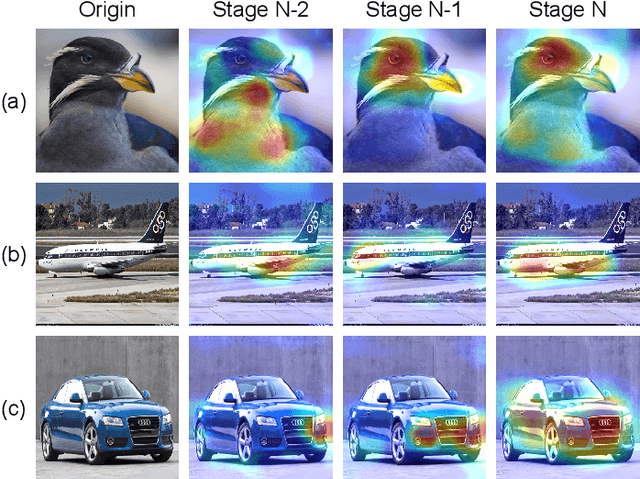
Abstract:Fine-grained Visual Classification (FGVC) aims to identify objects from subcategories. It is a very challenging task because of the subtle inter-class differences. Existing research applies large-scale convolutional neural networks or visual transformers as the feature extractor, which is extremely computationally expensive. In fact, real-world scenarios of fine-grained recognition often require a more lightweight mobile network that can be utilized offline. However, the fundamental mobile network feature extraction capability is weaker than large-scale models. In this paper, based on the lightweight MobilenetV2, we propose a Progressive Multi-Stage Interactive training method with a Recursive Mosaic Generator (RMG-PMSI). First, we propose a Recursive Mosaic Generator (RMG) that generates images with different granularities in different phases. Then, the features of different stages pass through a Multi-Stage Interaction (MSI) module, which strengthens and complements the corresponding features of different stages. Finally, using the progressive training (P), the features extracted by the model in different stages can be fully utilized and fused with each other. Experiments on three prestigious fine-grained benchmarks show that RMG-PMSI can significantly improve the performance with good robustness and transferability.
A Uniform Framework for Anomaly Detection in Deep Neural Networks
Oct 06, 2021



Abstract:Deep neural networks (DNN) can achieve high performance when applied to In-Distribution (ID) data which come from the same distribution as the training set. When presented with anomaly inputs not from the ID, the outputs of a DNN should be regarded as meaningless. However, modern DNN often predict anomaly inputs as an ID class with high confidence, which is dangerous and misleading. In this work, we consider three classes of anomaly inputs, (1) natural inputs from a different distribution than the DNN is trained for, known as Out-of-Distribution (OOD) samples, (2) crafted inputs generated from ID by attackers, often known as adversarial (AD) samples, and (3) noise (NS) samples generated from meaningless data. We propose a framework that aims to detect all these anomalies for a pre-trained DNN. Unlike some of the existing works, our method does not require preprocessing of input data, nor is it dependent to any known OOD set or adversarial attack algorithm. Through extensive experiments over a variety of DNN models for the detection of aforementioned anomalies, we show that in most cases our method outperforms state-of-the-art anomaly detection methods in identifying all three classes of anomalies.
 Add to Chrome
Add to Chrome Add to Firefox
Add to Firefox Add to Edge
Add to Edge